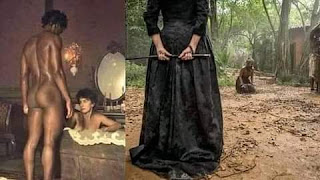How the world executes its worst criminals: Methods of capital punishment used around the world from beheading
How the world executes its worst criminals: Methods of capital punishment used around the world public beheading
The dramatic uptick of capital punishment in recent years, and the brutality of methods still used around the world, has thrust state-sanctioned executions back into the spotlight.
China's murky record is brought into focus by wide reports alleging thousands are killed each year in a horrifying 'conveyer belt' of death, the Chinese Communist Party embracing anachronisms including firing squads and mobile death vans to expedite state executions.
But the United States has also come under fire for its use of capital punishment, with rights groups increasingly alarmed by an upward trend in the number of murderers put to death in recent years.
Today both East and West deploy techniques that involve shock, injury and gas - in some cases leaving the condemned person to suffer for more than half hour before dropping dead.
And a multipolar world with hardline governments in the Middle East has seen the return of methods of mass executions by stoning and beheading with a sword. In 2020, 88 per cent of all known executions were carried out in just four countries: Iran, Iraq, Saudi Arabia and Egypt.
As rights groups warn of the rising prevalence of capital punishment, and critics slam the inhumanity of modern means, MailOnline looks at the ways the world still executes its worst criminals.
Beheading
The majority of state executions in Saudi Arabia are still carried out by sword decapitation. It is a particularly bloody and violent means of capital punishment only carried out by Saudi Arabia - and can be used for a variety of crimes including murder, apostasy (abandoning Islam), homosexuality, witchcraft or sorcery, and 'waging war on God'.
While in the US the death penalty is being used less and less, interest in Saudi practices has grown alongside the rate of capital punishment. On March 12 2022, 81 people were beheaded - the largest mass execution in recent years, despite promises to limit use of such measures.
Human Rights Watch slammed the Saudi authorities for a 'brutal show of autocratic rule', noting many families found out about the deaths of their loved ones 'just like the rest of us, after the fact and through the media'. They also questioned the 'fairness of their trials and sentencing'.
Reprieve has said the tenure of Mohammed bin Salman since 2015 saw a 82 per cent rise in the number of yearly beheadings over the period 2015 - 2021.
In 2003, state executioner Muhammad Saad al-Beshi detailed exactly how these brutal killings take place, sometimes with a gun, others a sword. He said of his first execution in 1998: 'The criminal was tied and blindfolded. With one stroke of the sword I severed his head. It rolled metres away.'
'There are many people who faint when they witness an execution. I don't know why they come and watch if they don't have the stomach for it,' said the father of seven, who has been known to let his children clean the sword after a killing.
'No one is afraid of me. I have a lot of relatives, and many friends at the mosque, and I live a normal life like everyone else. There are no drawbacks for my social life.'





Comments
Post a Comment